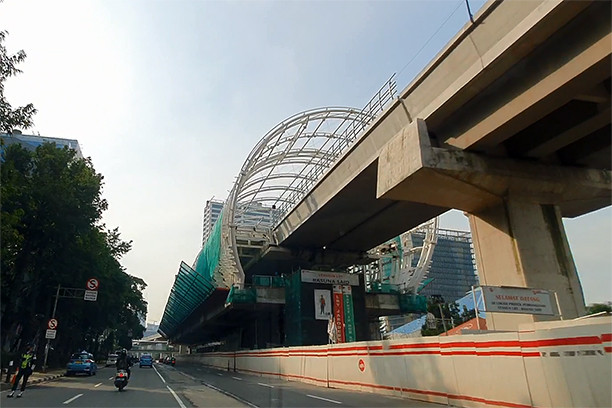Popular Reads
Top Results
Can't find what you're looking for?
View all search resultsPopular Reads
Top Results
Can't find what you're looking for?
View all search resultsIndonesia must derisk its infrastructure projects to attract foreign investors amid crisis: Infrastructure Asia
“There is not currently a shortage of liquidity at the international level. However, the issue is how to refocus on opportunities and make them attractive to the international private sector so investors come in and contribute to economic growth,” the advisory group's executive director Seth Tan told The Jakarta Post in an exclusive interview on Aug. 14.
Change text size
Gift Premium Articles
to Anyone
T
he Indonesian government should focus on reducing the risks associated with infrastructure projects and prioritize certain types of infrastructure to lure foreign investors during the ongoing global health crisis, Singapore-based infrastructure investment advisory group Infrastructure Asia (IA) has stated.
“There is not currently a shortage of liquidity at the international level. However, the issue is how to refocus on opportunities and make them attractive to the international private sector so investors come in and contribute to economic growth,” the advisory group's executive director Seth Tan told The Jakarta Post in an exclusive interview on Aug. 14.
He added that a well-established consortium of investors preferred low-risk infrastructure projects over highly profitable ones, and that governments should seek to attract those types of investors rather than those only seeking to gain high profits.
“From my experiences working on projects outside Asia, projects that have an internal rate of return [IRR] slightly below the profitable level of 20 percent can still get a very credible consortium both from the equity and debt side. Furthermore, those types of consortiums will also bring the right support system and the outcome will be great,” he said.
The government has relied on the private sector to take part in developing, financing and managing the country’s ambitious infrastructure projects under the National Medium-Term Development Plan (RPJMN) amid state budget limitations.
The National Development Planning Agency (Bappenas) has estimated that the country will need US$429.7 billion in infrastructure investment, equal to 6.1 percent of GDP, between 2020 and 2024.
However, the government might only be able to finance 30 percent of the projects using the state budget, according to Public Works and Housing Ministry financing strategy director Herry Trisaputra Zuna, adding that it expected additional funds to come from the private sector and non-conventional sources of funding.
The ongoing global health crisis has also caused a decline in Indonesia’s foreign direct investment (FDI) for the second consecutive quarter this year, falling by 6.9 percent year-on-year (yoy) to Rp 97.6 trillion in the April-June period.
Tan said that Indonesia had shown improvement in its efforts to lower the risks of its infrastructure projects through schemes like viability gap funds (VGF) and public-private partnerships (PPP), which are projected to help attract foreign investment despite not being highly profitable.
The VGF is a government subsidy used to partially finance infrastructure construction to boost a project’s financial feasibility.
“I think Indonesia did well in terms of ideas because some of things like VGF, and other ideas, help propel more PPP projects. It derisks the projects,” Tan said.
Besides derisking its projects, he added that the Indonesian government should also focus its infrastructure development push on public health, waste management, urban development, logistical connectivity and digital connectivity, as those areas were needed to generate a higher level of economic growth, particularly in the post-COVID-19 pandemic era.
“If the government makes the right effort in these refocused sectors it will generate economic growth,” he said.
During his annual address to the House of Representatives on Aug. 14, President Joko “Jokowi” Widodo vowed to allocate Rp 414 trillion ($27.7 billion) on the 2021 state budget draft for infrastructure development, focusing economic recovery, provision of basic services and connectivity improvement. The proposal is Rp 281.1 trillion higher than the allocation for infrastructure development in the revised 2020 state budget.
“Infrastructure spending [in 2021] will be directed toward strengthening our digital infrastructure, increasing our logistical and connectivity efficiency and labor-intensive infrastructure projects that support tourism and industrial zone developments,” the President said.
“Furthermore, we will also develop healthcare facilities for the people and provide basic services such as water, sanitation and housing,” he added.










